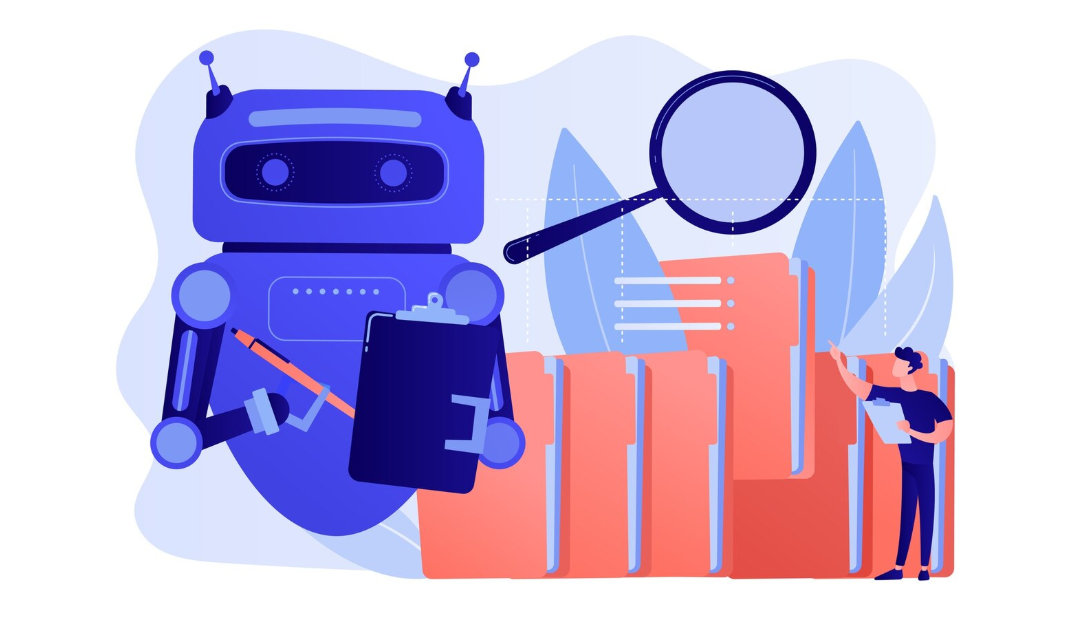
Introduction to AI in SEO
In recent years, the integration of artificial intelligence (AI) into various fields has transformed traditional practices, and search engine optimization (SEO) is no exception.
AI refers to the simulation of human intelligence processes by computer systems, which includes learning, reasoning, and self-correction.
The adoption of AI tools in SEO has significantly increased as businesses and marketers recognize their potential to enhance online visibility and improve search rankings.
AI technologies have rapidly evolved, paving the way for innovative solutions that address complex challenges faced by SEO professionals.
From keyword analysis to content generation, the application of AI tools can streamline various aspects of SEO strategies, making them more efficient and data-driven.
By analyzing vast amounts of data in real time, AI tools can provide insights that would be impossible to obtain through manual efforts alone, thus significantly improving decision-making processes in optimizing digital content.
One of the primary benefits of using the best AI tools for SEO is the ability to perform competitive analysis swiftly.
These tools can evaluate competitors’ websites to identify strengths and weaknesses, allowing businesses to adjust their strategies accordingly.
Furthermore, AI can enhance personalized content recommendations, ensuring that the content created aligns with user intent and behavior.
For instance, AI writing tools can generate high-quality, relevant content tailored to specific audience preferences, resulting in increased engagement and improved conversion rates.
As SEO continues to evolve in an increasingly competitive digital landscape, the role of AI will become more prominent.
Businesses that embrace these advanced technologies are more likely to stay ahead of the curve and achieve sustainable success.
In conclusion, understanding the intersection of AI and SEO is crucial for leveraging the full potential of these innovative tools, making them indispensable for modern marketing strategies.
Why Use AI Tools for SEO?

In the rapidly evolving digital landscape, leveraging AI tools for SEO has become not only beneficial but essential for businesses aiming to maximize their online visibility.
These advanced tools offer unparalleled data analysis capabilities, allowing marketers to sift through vast amounts of information more efficiently than traditional methods.
By employing the best AI tools, businesses gain deeper insights into their audience’s behavior, preferences, and search patterns, facilitating more informed decision-making and strategy development.
One of the significant advantages of incorporating AI writing tools into SEO practices is the improvement in keyword research.
With the ability to analyze search intent and trends, AI tools for SEO facilitate the identification of high-performing keywords that resonate with target audiences.
This level of sophistication is imperative for optimizing content to align with user queries, enhancing discoverability, and engagement.
Consequently, companies can generate relevant content that directly addresses consumer needs, leading to higher conversion rates.
Moreover, AI tools can streamline content creation processes. By automating mundane tasks such as drafting outlines or generating topic ideas, these tools allow content creators to focus on crafting high-quality articles.
Furthermore, AI-powered systems can suggest improvements that enhance readability and SEO performance, ensuring that the produced content not only meets quality standards but also adheres to search engine guidelines.
The result is a more efficient content pipeline, which ultimately contributes to a stronger online presence.
Finally, integrating AI tools enables businesses to stay ahead of SEO trends. With their capability to analyze data in real time, these tools can quickly adapt strategies to emerging algorithms and search trends, ensuring that companies remain competitive.
Embracing AI in SEO practices thus leads to a better return on investment (ROI) and helps businesses thrive in the digital arena.
Top AI Tools for SEO
In today’s digital landscape, leveraging the top AI tools for SEO is essential for businesses aiming to enhance their online visibility.
Several AI tools have emerged, each offering unique functionalities that cater to different aspects of search engine optimization. Below is a curated list of some of the top AI tools specifically designed for SEO purposes.
One of the leading tools is SEMrush, renowned for its comprehensive suite of features. This platform combines keyword research, site audit, and traffic analysis, allowing users to identify opportunities for improvement and track their SEO performance effectively.
The AI capabilities of SEMrush enable users to make data-driven decisions, enhancing both efficiency and results.
Another noteworthy tool is Ahrefs, which specializes in backlink analysis and competitive research. Ahrefs uses advanced algorithms to provide insights into keyword rankings, site health, and content analysis.
Its AI-powered systems recommend strategies to enhance domain authority, making it an indispensable tool for any SEO expert.
Copy.ai is an excellent AI writing tool that assists in content generation. It helps users create high-quality, engaging content that is optimized for search engines.
By utilizing advanced natural language processing, Copy.ai streamlines the writing process, ensuring that the content produced is both relevant and targeted.
When considering AI tools for SEO, MarketMuse is also an influential player. It focuses specifically on content optimization, utilizing AI to analyze topics and suggest enhancements that can improve search rankings.
The tool provides content briefs and gap analyses, fostering a deeper understanding of how to position content effectively within search engines.
In summary, the integration of AI tools into SEO strategies is critical for achieving success in today’s competitive environment.
With tools like SEMrush, Ahrefs, Copy.ai, and MarketMuse, businesses can optimize their SEO efforts, streamline their processes, and ultimately achieve greater online visibility.
Deep Dive: AI-Powered Keyword Research Tools

In the digital marketing landscape, effective keyword research is a cornerstone of successful SEO strategies. AI-powered keyword research tools have emerged as vital resources that leverage advanced algorithms to analyze search trends, competition, and user behavior.
These tools simplify the process of identifying high-potential keywords, thereby enabling marketers to enhance their search engine optimization efforts significantly.
One of the essential mechanisms employed by these AI tools is natural language processing (NLP), which allows them to interpret and generate human-like text.
This capability is crucial for understanding the context and intent behind search queries. By evaluating vast amounts of data, AI tools can uncover relevant keywords and phrases that align with users’ search intent, ultimately leading to improved website rankings and traffic.
Furthermore, many of these AI writing tools come equipped with features that allow marketers to analyze competition within their niche.
By evaluating the keyword usage of competitors, these tools provide insights into which keywords yield the best return on investment.
Such analytics empower marketers to make data-driven decisions, focusing their SEO efforts on high-value terms that are less saturated.
Additionally, AI-powered tools often include metrics like search volume, keyword difficulty, and CPC (cost-per-click), presenting a comprehensive view of each keyword’s potential.
This enables businesses to devise strategies tailored to their unique goals while capitalizing on market opportunities.
By utilizing these AI tools for SEO, marketers can optimize their content strategies and ultimately drive more organic traffic to their websites.
In conclusion, integrating AI keyword research tools into your SEO strategy can provide a definitive edge.
By understanding search trends and competition, marketers can discover and target the best potential keywords, thereby enhancing their online visibility and engagement.
AI for Content Creation and Optimization
Artificial Intelligence (AI) has rapidly evolved, playing a pivotal role in content creation and optimization processes.
The best AI tools available today are designed to enhance various aspects of content development, including generating compelling topic ideas, creating structured outlines, and even crafting complete articles.
By integrating these AI tools for SEO, content creators can streamline their workflows and improve overall productivity.
One of the key benefits of utilizing AI writing tools is their ability to generate a plethora of topic ideas based on current trends and audience interests.
This not only saves time but also ensures that content remains relevant and engaging. Moreover, AI-powered tools can analyze data from various sources, enabling writers to identify high-demand subjects that resonate with target audiences.
This data-driven approach ensures that content creation is aligned with user expectations, thus enhancing user experience and engagement.
Additionally, AI tools facilitate the creation of content outlines, allowing writers to organize their thoughts and structure their work effectively.
By providing coherent frameworks, AI technologies guide writers toward the logical progression of ideas. These outlines help ensure that all critical points are addressed and that the content is well-organized, promoting readability and comprehension.
Furthermore, the optimization of content for target keywords is a crucial aspect of SEO. AI tools analyze existing content, suggest relevant keywords, and assist in incorporating them seamlessly within the text.
This optimization ensures adherence to SEO best practices, thus improving search engine rankings. By leveraging AI writing tools for these tasks, creators can focus on delivering high-quality, engaging content while AI handles the intricacies of SEO optimization.
Using AI for Competitive Analysis
In today’s highly competitive digital landscape, businesses must employ every available advantage to enhance their visibility and performance.
One of the most efficient methods to achieve this is through the use of AI tools for competitive analysis.
These advanced technologies enable organizations to gather valuable insights into their competitors’ SEO strategies, allowing them to remain agile and informed in their approach.
AI tools facilitate the tracking of competitors’ keywords, which is a crucial aspect of any successful SEO strategy.
By examining the keywords that competitors rank for, businesses can identify gaps in their content and incorporate high-value terms into their strategies.
This process not only assists in understanding which keywords drive traffic but also highlights the effectiveness of various content marketing initiatives.
Utilizing AI tools for SEO enables a more targeted content creation plan that is directly influenced by competitor performance.
Additionally, AI tools provide detailed insights into competitors’ backlink profiles. Understanding where competitors acquire their backlinks can help in establishing valuable partnerships and generating new links that drive authority and traffic.
By analyzing the quality and types of backlinks that are effective for competitors, businesses can develop a more robust link-building strategy to improve their online standing.
Moreover, AI-driven solutions can assess competitors’ overall content strategies. This encompasses evaluating their content formats, frequency of publication, and audience engagement levels.
Businesses can leverage this data to refine their content marketing strategies, ensuring that their output resonates more effectively with audiences.
By staying informed of industry trends and shifts in competitor strategies through AI tools, companies can adapt their approaches and maintain a competitive edge.
Ultimately, employing the best AI tools for competitive analysis equips businesses with the necessary insights to optimize their SEO efforts.
Through a comprehensive understanding of their competitors, organizations are better positioned to enhance their digital presence and achieve sustained success.
AI in Technical SEO
The integration of AI tools into technical SEO practices has revolutionized the way websites are optimized for search engines.
One of the most significant advantages of using AI in this domain is its capability to conduct comprehensive site audits. Traditional auditing processes can be time-consuming and may overlook crucial issues.
However, AI tools can rapidly scan a website to identify problems such as broken links, duplicate content, and insufficient meta tags.
By leveraging AI, SEO professionals can gather a more thorough analysis of their websites, enabling them to focus on high-priority issues that directly impact site performance.
Another critical area where AI excels is page speed analysis. Search engines prioritize fast-loading pages, as they enhance user experience.
AI tools can analyze various factors affecting page speed, such as server response times, image sizes, and unnecessary scripts.
By providing actionable insights and recommendations, AI helps webmasters implement changes more efficiently, ensuring that their sites meet or exceed the benchmarks set by search engines.
Mobile usability has become increasingly important in the era of mobile-first indexing. AI tools can assess how well a website performs on mobile devices, identifying issues like non-responsive design elements or slow-loading pages on mobile networks.
With the data provided by AI solutions, businesses are better equipped to enhance their mobile experience, ultimately contributing to improved search rankings and user satisfaction.
Structured data implementation is yet another significant area where AI tools shine. They assist in analyzing existing structured data and can identify areas for improvement.
By leveraging AI for structured data validation, businesses can ensure that search engines understand their content better, facilitating rich snippets and enhanced visibility in search results.
Overall, the incorporation of AI in technical SEO activities not only streamlines processes but also significantly boosts a website’s ability to compete effectively in search engine rankings.
Best Practices for Implementing AI Tools in SEO
Successfully integrating AI tools into an existing SEO strategy requires a systematic approach that emphasizes both selection and continuous adaptation.
One of the best practices is selecting the best AI tools tailored to the specific needs of your SEO objectives.
Consider factors such as ease of use, compatibility with existing software, and the range of features offered when evaluating different AI tools.
For instance, some AI tools for SEO are specifically designed for keyword research, while others excel in content optimization or competitive analysis.
By aligning the functionalities of these tools with your goals, you can streamline your efforts and maximize the effectiveness of your SEO strategy.
Once the appropriate AI tools are identified, training the team responsible for implementing these technologies becomes imperative.
A comprehensive training program should cover not only how to use the tools but also the interpretation of the AI-generated data.
This understanding will empower team members to derive meaningful insights and make informed decisions that enhance overall SEO performance.
Workshops, webinars, or online training platforms can serve as viable methods for educating staff about the potential of AI tools and their application in SEO processes.
Moreover, the application of AI tools should not be a one-time initiative; rather, it should be an ongoing practice of review and adaptation.
Establishing a regular schedule for evaluating the insights generated by the tools allows for timely adjustments to optimize SEO strategies.
Analytics dashboards provided by most AI writing tools can help teams track performance metrics and identify trends.
This data-driven approach not only fosters continuous improvement but also encourages collaboration among team members, leveraging diverse perspectives to refine techniques and stay ahead in a competitive landscape.
Future Trends in AI and SEO
The intersection of artificial intelligence (AI) and search engine optimization (SEO) continues to evolve rapidly, presenting an array of opportunities for businesses seeking to enhance their online visibility.
As we move forward, several key trends are expected to shape the future landscape of AI tools for SEO.
One significant trend is the increasing sophistication of machine learning algorithms. These algorithms are evolving to understand user intent better by analyzing data patterns and predicting search behaviors.
This means that future AI tools will likely provide more accurate keyword suggestions, enabling businesses to optimize their content more effectively.
With AI writing tools advancing in natural language processing, the ability to create contextually relevant content that resonates with target audiences will become paramount.
Another emerging trend is the integration of AI tools in real-time analytics. Businesses can expect tools that not only monitor SEO performance but also offer actionable insights instantly.
This shift will empower marketers to make data-driven decisions swiftly, allowing them to adapt their strategies as search engine algorithms evolve.
The automation of routine tasks through AI will also enable SEO professionals to focus on higher-level strategies, enhancing efficiency.
Moreover, conversational AI is poised to play a crucial role in the future of SEO, particularly with the rise of voice search and chatbots.
As more users turn to voice-activated search, it becomes increasingly important for content to align with natural speech patterns.
This will necessitate the use of AI tools that can analyze and optimize for voice search queries, thus ensuring businesses remain competitive in an evolving marketplace.
Finally, businesses will need to be proactive in adapting to AI-driven changes in SEO strategies.
By staying informed about the latest AI tools and trends, companies can leverage these innovations to enhance their SEO efforts and ultimately drive organic traffic to their websites.

